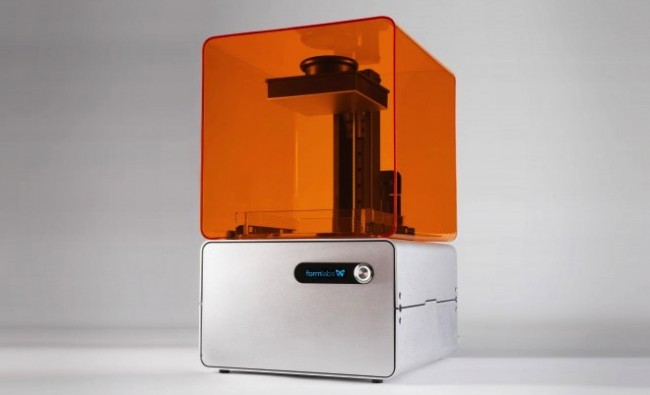With powerful hardware working together with an industry-leading camera system and intuitive AI experiences, everyday tasks have never been easier and faster
3 great gadget Kickstarter projects for the geek at heart

Crowd funding site Kickstarter has produced some great products, all funded by the people for the people, and there just so happens to be one sector in which the platform shines – technology. While there might not be a cut and dry formula to having a successful Kickstarter campaign, these top three most funded technology campaigns give us a clue as to what does well on the crowd-funding platform. Let’s take a look.
#3: SmartThings: Make your world smarter
Imagine an interactive house that thinks for itself. When you wake up your coffee machine switches on because your bed told it to, or your windows automatically close when it starts raining. This is SmartThings – intelligence for the everyday objects in your life.
SmartThings is not new technology, it’s essentially Arduino applied in rather ingenious ways. By using various sensors placed on objects you can monitor presence, motion, temperature, moisture, open/close, vibration and more as they communicate with you wirelessly through your smartphone. You can give commands and receive notifications via the cloud-based SmartApps, and the possibilities are endless.
What’s even better is that SmartApps is open source, so even if you can’t program to customise your own sensors you can put your money on the fact that the platform will provide more functionality as it grows over time.
Another aspect of SmartThings is the melding of the physical and online world. Say, for example, you get a new follower on Twitter, why not let your house celebrate by flickering all the lights on and off.
There are currently three packages:
- Home Security which focuses on monitoring the comings and goings of your house, locking doors and turning lights on when you aren’t home.
- Home Watch focuses on the building itself such as moisture and temperature changes.
- Family Life monitors your loved ones and pets or precious items.
They all retail for US$299 and if you pre-order now (the first ten thousand orders) you get the SmartThings service free for life. After that you might have to pay around US$0-US$15 per month for the service. Orders are due to start shipping in Spring 2013.
Bear in mind there might be regional locks, but there is a full refund policy in place (30 days) and more information on this should be out closer to launch.
Kickstarter Goal: US$250,000
Amount Pledged: US$1,209,423
#2: Oculus Rift: Step into the game
The former number one most funded tech product is potentially the best virtual reality (VR) headset on the market – dubbed ‘The Rift’.
The Rift sets itself apart from other VR headsets with almost a three times bigger FOV (field of view), high-resolution display and ultra low latency when head tracking. Slap on a super low price (by comparison) and you get what some are calling the future of gaming.
Most VR headsets lack either the technical features of the Rift or are really expensive (over US$100, 000). The Rift bridges that gap boasting an affordable product with technical specs that not only compete with high-end headsets, but may even outclass them in comfort and accessibility.
The Rift’s FOV is 110 degrees diagonal versus 40 degrees on other headsets and all the while its resolution sits at an impressive 1280×800. Its head tracking promises ultra low latency (check the video above) and yet this all retails (developer kit) at US$300 or US$345 with international shipping.
Bear in mind that the consumer version is still a way off but getting these developer kits out as soon as January 2013 means that the final version might not be too far off. The only drawback I can see is that it doesn’t provide sound; you still have to wear headphones as well as the headset. For a product aimed at immersion, I hope they address this.
However with huge names singing its praises including Gabe Newel (Valve President) and John Carmack (id Software) it seems the Rift has got momentum going forward. It’s launching bundled with Doom 3 BFG edition and I can’t wait to see what other titles become Rift compatible down the line.
With its design firmly focused on comfort and unparalleled immersion, this truly could be the future of gaming.
Kickstarter Goal: US$250,000
Amount Pledged: US$2,437,429
#1: FORM 1: An affordable, professional 3D printer
There are around 1.87-million engineers and designers who use SolidWorks and yet only a few thousand 3D printers in the world. This is because professional grade 3D printers are astonishingly expensive.
FormLabs are trying to change that with the FORM 1 – a high-resolution Desktop 3D printer – by appealing to small businesses, young engineers and designers by starting at a more affordable price point.
The FORM 1 is an all-in-one package. It comes with printer, software and post-processing kit and each aspect is remarkable. It prints using Stereolithography (SL) whereby a laser solidifies liquid plastic resin at certain light wavelengths resulting in models that are smoother and more detailed than say fused deposition modelling (FDM). The build volume is 125 x 125 x 165 mm, and each layer can be as little as 25 microns (0.001 inches) in thickness.
The software streamlines printing: you can save templates, make changes to your designs, view individual layers and more. The Form Finish Kit provides a rinsing solution, scraper, tongs, drip and so on to allow you to clean up and polish your prints. It’s clear that the FORM 1 is not designed to just make prototypes, it can create finished products. You could essentially start a business with this kit, and all for around US$2,699 (retail price to be confirmed).
FormLabs have stated that the resin can be quite expensive, estimated at around US$149 per litre, but traditional suppliers cost around US$300-US$800 per litre.
It’s amazing what the FORM 1 offers; SL is considered the gold standard of 3D printing, and the printer itself is beautifully designed. There are very few moving parts promising longevity and the see-through orange case invites people to watch the printing process as an attraction unto itself. It’s really no wonder that this is the highest funded technology Kickstarter campaign.
Kickstarter Goal: US$100,000
Amount Pledged: US$2,945,885
So what can we learn from these three Kickstarter campaigns? All of these products already exist in some form or other, but these add beautiful design, affordability and apply the existing technology in a neat package that appeals to their niche market and perhaps even broader groups.
Every homeowner wants the functionality of SmartThings, every gamer wants a more immersive experience and all engineers and designers wish they could make affordable 3D models. These products either fill their niche or bridge a gross price disparity, or both. It’s apparent from these campaigns that innovation is not everything; just as important is how you apply and market the technology that determines your success on Kickstarter.

